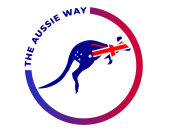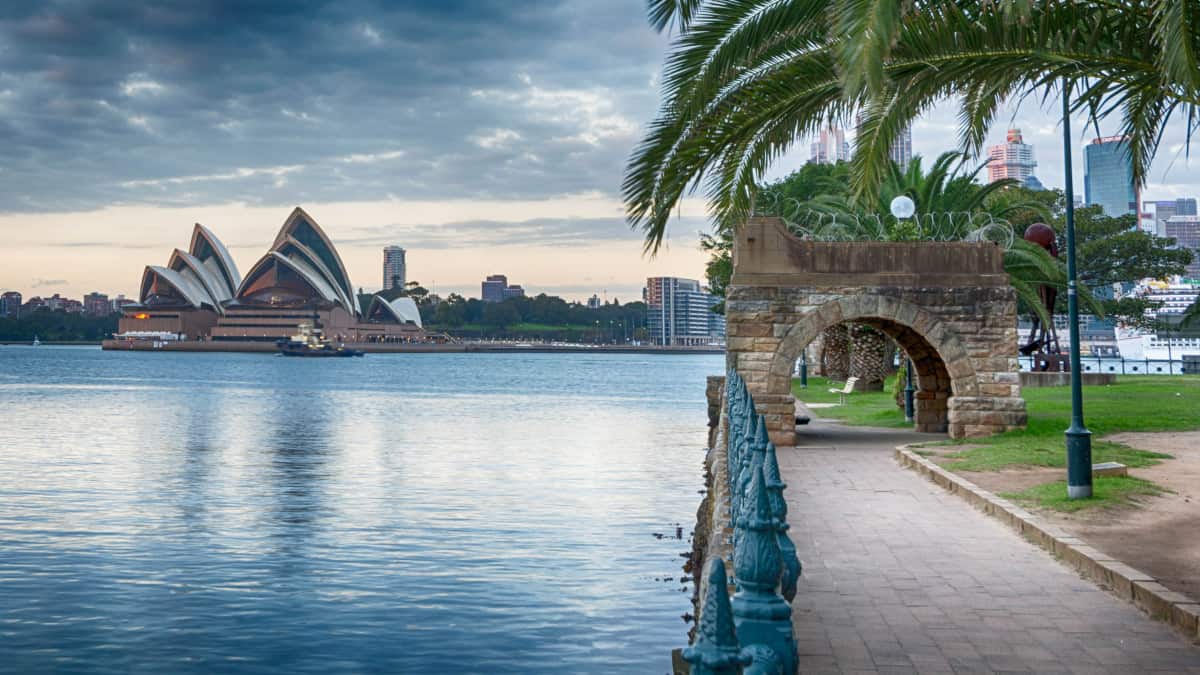
Australia is blessed with lovely sunny weather, spectacular natural landscapes, good wine, and a friendly, laid-back population. It is also well known for its unique flora and peculiar creatures, many of which are unique to Australia, like bioluminescent glow worms.
The phrase “our land abounds in nature’s gifts of beauty, rich and rare” from Australia’s national anthem describes the picture. Wildlife enthrals those who adore the outdoors. With millions of visitors each year, an increasing number of local and foreign visitors direct their animal senses toward some of the most well-known Australian wildlife areas. Numerous of these famous locations are also among Australia’s most attractive places to visit.
Endangered wildlife abounds, including the well-known koala and the vicious Tasmanian devil, as well as less well-known species like the echidna, bandicoot, quoll, and fairy penguin. But how can you even start to see Australian creatures in the wild in such a big country?
Whales and sharks Whether you like dolphins, penguins, camels, or horses as your favourite wildlife species, we have found the most incredible locations and unforgettable experiences for the greatest Australia wildlife holidays for animal lovers.
The Great Barrier Reef
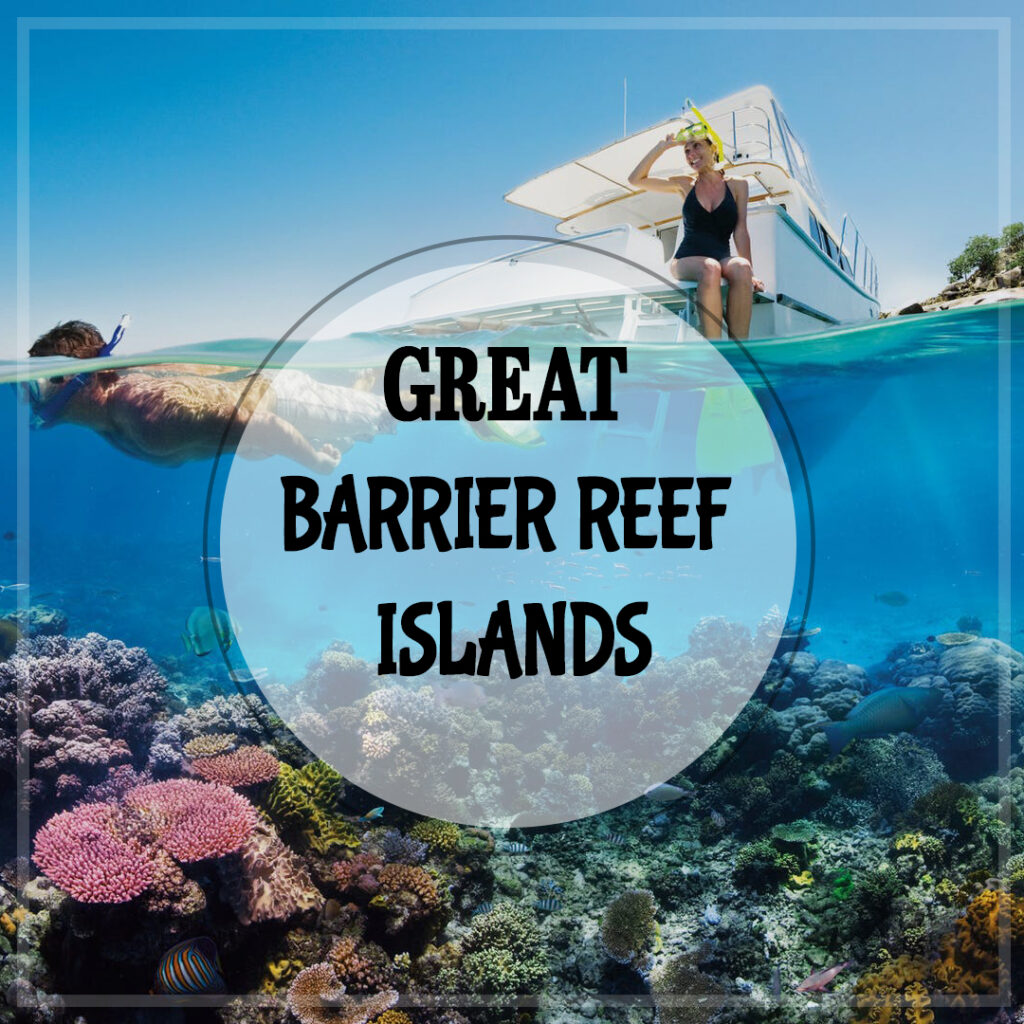
This enormous structure, which is visible from space, is situated not far from Queensland’s shore. The reef, which stretches over 2300 kilometres, is home to numerous fascinating and endangered species. These seas are home to a wide variety of marine life, including clownfish, mantis shrimp, dugong, humpback whales, whale sharks, green turtles, blanket octopuses, and many others. You should have no trouble visiting this World Heritage Site if you want to dive, snorkel, or swim in the Great Barrier Reef and get up close and personal with some of the animals that dwell here because it is reachable by land, sea, and air.
More than 500 varieties of coral, more than 100 shark and ray species, six species of marine turtles, more than 30 species of marine mammals, and more than 215 bird species can all be found on the Great Barrier Reef.
You can cruise Michaelmas Cay, fly over Heart Coral, cruise Agincourt Reef, stay on Herron Island directly on the reef, or take a seaplane over Agincourt Reef to experience this astounding richness of species. A variety of lodging options are available that provide access to the Great Barrier Reef‘s stunning wonders.
Ningaloo Reef and Exmouth
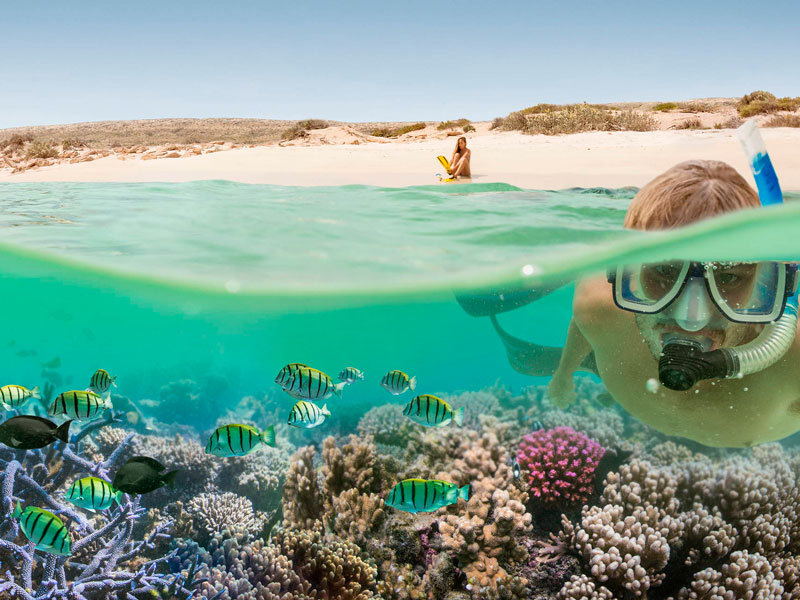
The finest wildlife location in Australia to see whale sharks is here. Additionally, visible are manta rays and, of course, all the other reef dwellers. You want to go to Ningaloo Reef when you eventually find yourself in Western Australia. You will have the chance to go diving among some of the most beautiful marine life in existence at this World Heritage Site. For instance, Ningaloo Reef is home to the whale shark, the largest fish in the world. They are harmless, but they will undoubtedly make you gasp for air. Turtles, manta rays, and a variety of tropical fish live on the bordering coral reef.
Marine life loves Ningaloo Reef, which is their paradise. Every year, from April to July, whale sharks gather in enormous numbers in this one location alone, close to the beach. Information on the various trip choices for seeing these marine giants is available from the Exmouth Visitor Center.
In addition to the whale sharks, the reef is also home to six different kinds of sea turtles and manta rays. On their annual migrations between their breeding grounds in the warm tropical waters and their feeding sites in Antarctica, humpback whales stop at Ningaloo Reef.
The biodiversity at Daintree Rainforest, Queensland
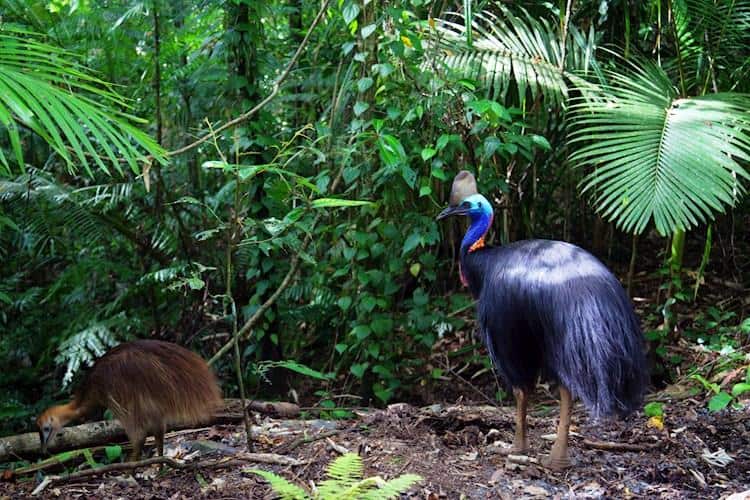
The Daintree Rainforest in northern Queensland is the oldest rainforest on Earth and is home to a wide variety of unique plants and animals. It’s one of the best sites in Australia to watch animals because of this. Cassowaries, bandicoots, musky rat-kangaroos, rufous owls, sugar gliders, huge tree frogs, and many other animals can be found in this 180 million year old jungle.
BirdLife International has designated the Daintree Rainforest as an Important Bird Area (IBA), primarily due to the presence of a population of southern cassowaries there. Two endemic species of bowerbirds, gorgeous fairywrens, fernwrens, owls, kingfishers, and several other bird species all have habitat thanks to it.
It serves as a reminder of Australia’s hot, muggy past, which occurred millions of years ago, before the continent’s climate started to get drier and hotter. Choose a guided tour so that your knowledgeable guide can locate and point out the local fauna. Alternatively, maybe a river cruise through the mangroves is more your style.
Kangaroo Island
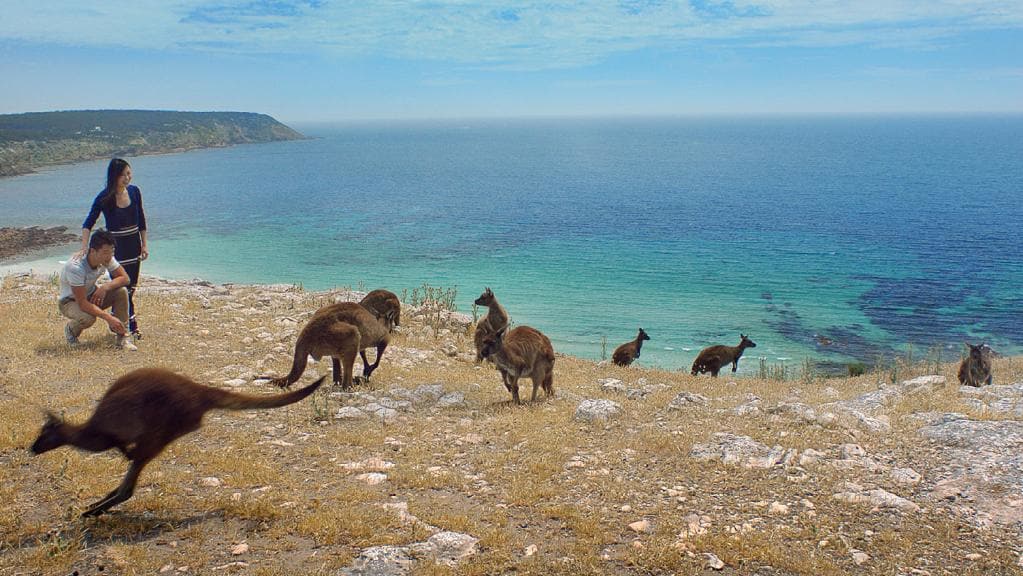
Kangaroo Island is a fantastic location to find wildlife in Australia where you may see animals and is home to kangaroos, birds, seals, sea lions, koalas, and many more.
It’s home to a variety of animals. This island is home to a variety of natural animals, including the Kangaroo Island kangaroo, the southern brown bandicoot, the short-beaked echidna, and six different types of bat and frog. Visit Hanson Bat Wildlife Sanctuary to observe koalas, wallabies, kangaroos, and more than 40 different bird species. Seal Bay is the place for you if sea lions are more your style. Kangaroo Island is easily accessible by ferry from Adelaide, and more than a third of it is protected as national parkland.
Some of the must-see locations are Seal Bay, where you can see sea lions, Admiral’s Arch, where you can see fur seals, Flinders Chase National Park, where you can see echidnas, platypus, and Cape Barren geese, American River, where you can see sea colonies, and Little Sahara, an island-wide area with dunes.
On Kangaroo Island, you can book accommodations where the amazing animals can be viewed out your window or even just outside your door. For information on the top animal locations on Kangaroo Island, go to this trip report.
Kakadu National Park
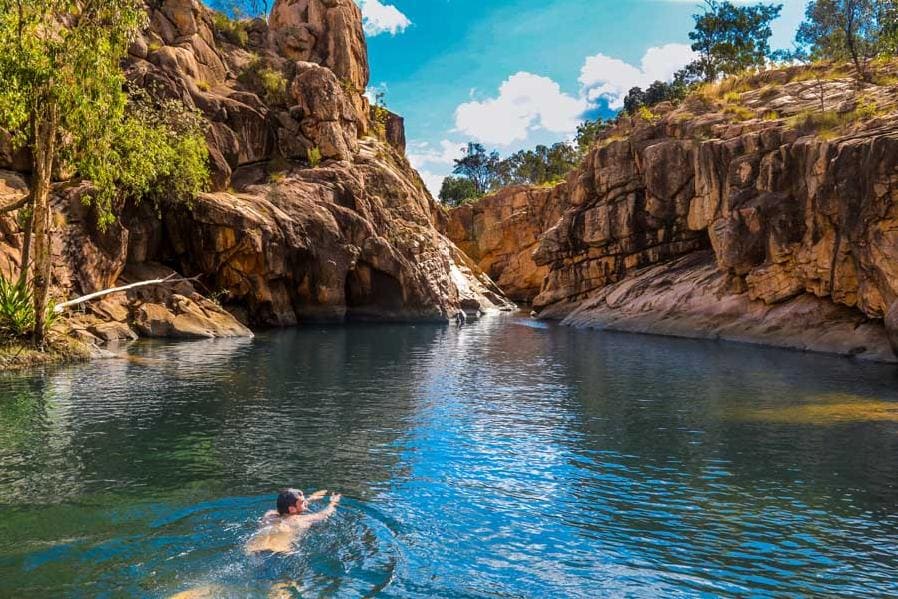
Kakadu National Park, which is situated in the Northern Territory, is a place with a unique ecosystem and biological population that you should not skip visiting. This protected national park has a great concentration of animals due to its four river systems, six primary landforms, including estuaries, lowlands, and stone country. For instance, Kakadu is home to 280 bird species, 117 reptile species, and about 70 mammal species, many of which are uncommon and endangered. The biodiversity of this area is simply breathtaking, with species like the Australian darter, the red goshawk, the distinctive frill-necked lizard, and the nimble wallaby.
You might not be able to see all the animals you were hoping to observe due to the sometimes harsh weather conditions and the fact that many of the species are nocturnal. There are no commercial flights to the national park, so the only way to get there is to travel to Darwin or Alice Springs and then drive from there. Everything from camping to hotels and cabins is accessible in terms of lodging.
There are 90- and 120-minute cruises along the Yellow Water Billabong offered by Yellow Water Cruises. Numerous species of wildlife are present throughout the vast marshes. Kakadu is, therefore, the place to go if you enjoy a daring trip close to crocodiles that eat flesh.
The Penguin Parade on Phillip Island
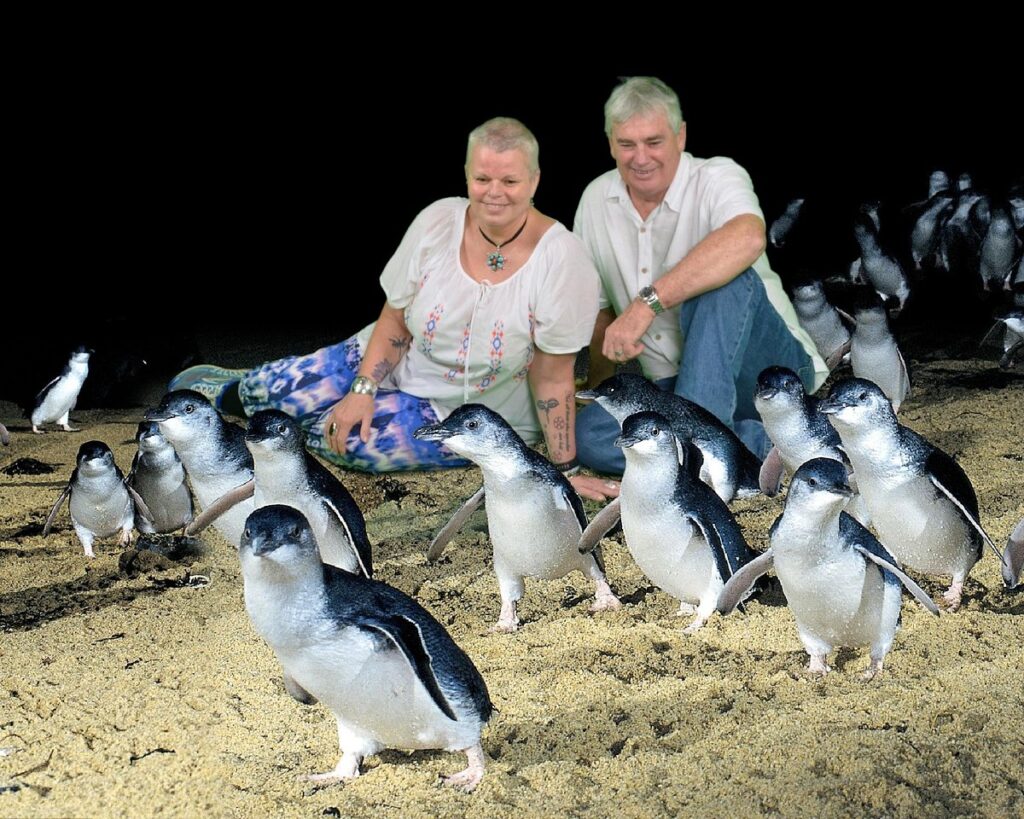
The Phillip Island Circuit attracts a lot of motorcycle and auto fans, but this southern Victorian coastal location is best known for its Summerland Beach sunset penguin parade. The Seal Rocks outcrop, which is home to a sizable colony of Australian fur seals, may be seen from the Nobbies outcrop. You won’t ever be too far from all the tourist action and fantastic family attractions in Phillip Island thanks to the abundance of lodging options.
One of the best spots in the world to get a close-up look at penguins is Phillip Island, which is 90 minutes from Melbourne and not too far from anywhere else. After a challenging day in the ocean, the small creatures waddle along the beach to their burrow while grooming and interacting with one another. Additionally, the Koala Conservation Center is located on this island, allowing you to snap pictures of these adorable little creatures as well. As previously indicated, Phillip Island is accessible by day trip from Victoria’s city centre.
Dingoes in Queen’s Fraser Island
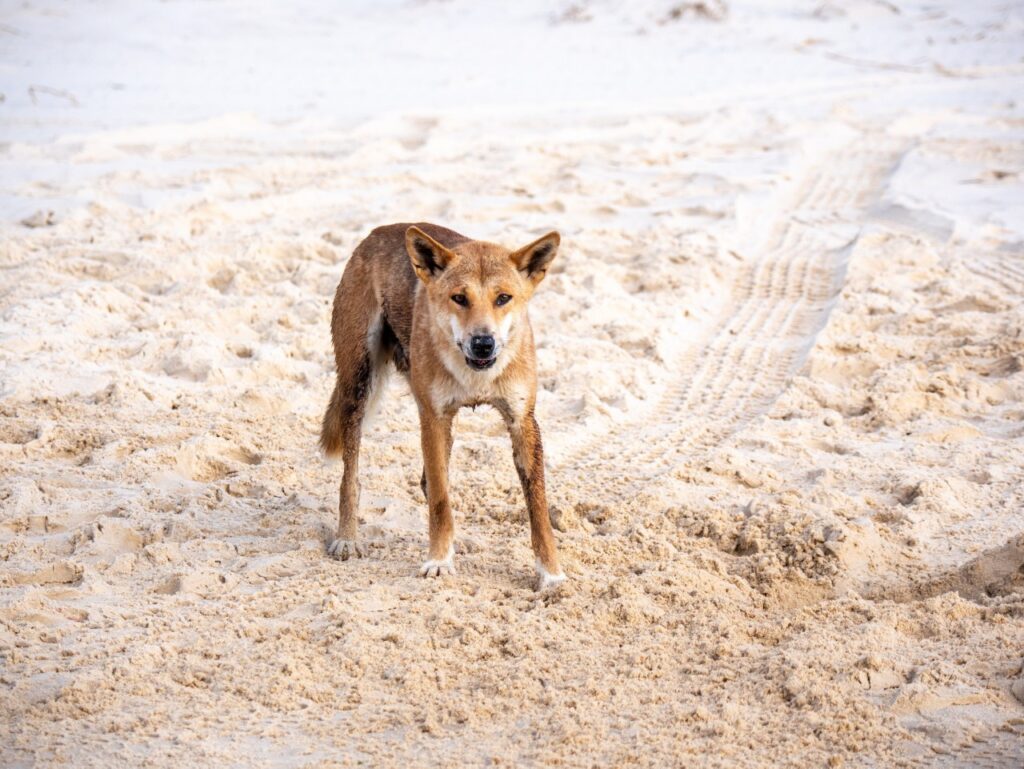
One of the best spots to find wildlife in Australia is K’gari(Fraser Island). You will be able to see dingos, which are typically elusive. While camping, you may encounter several marsupials at night. Along with its neighbour, Hervey Bay, Fraser Island is the nation of Australia’s whale-watching capital and the largest sand island in the world, measuring more than 120 kilometres. This eco-tourism location also offers plenty of animal viewing possibilities, including the chance to witness local dingoes, as well as swimming options at beautiful beaches and on Lake McKenzie. On Fraser Island, in the tranquil natural surroundings, there are reasonably priced resorts.
Although the most well-known dogs in Australia may be seen all over the country, Fraser Island in Queensland is one of the best spots to watch them. The dingoes roam freely along the beaches of Fraser Island, the largest sand island in the world. Since Fraser Island dingoes have not interbred with feral dogs as frequently as other mainland populations, they are thought to be the purest strain of dingo in Australia and are therefore legally protected. Do keep in mind that dingoes are wild animals that, despite belonging to the canine family, can be violent toward humans. Watch them from a safe distance, please!
The island state of Tasmania
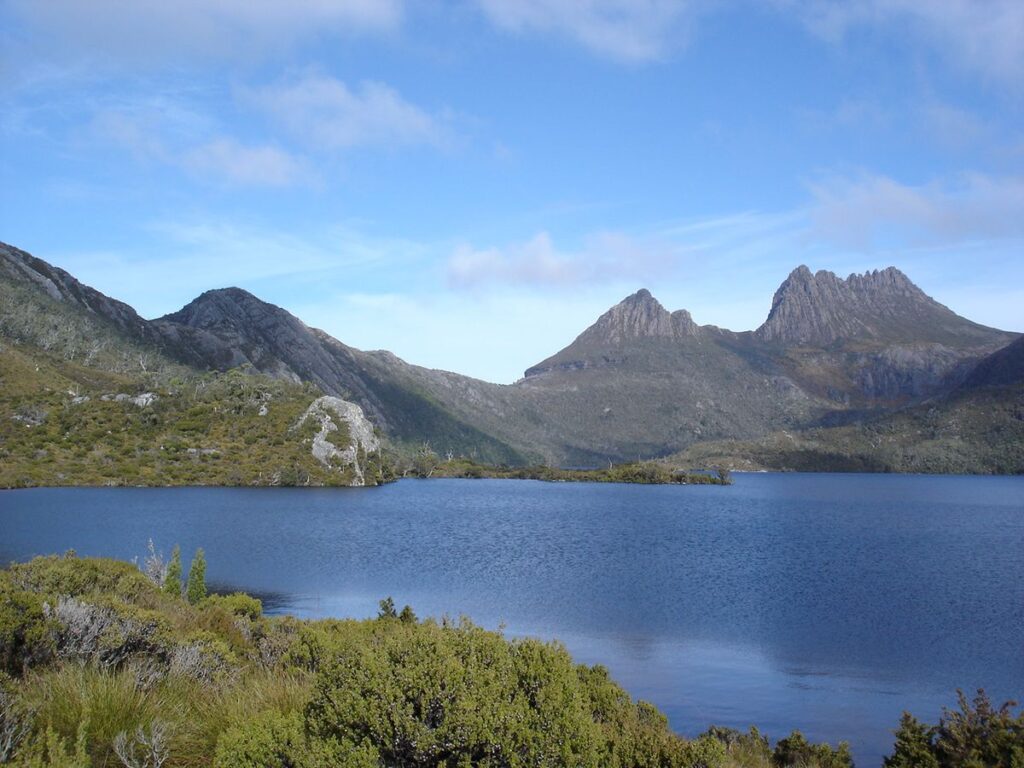
Tasmania is the only location where Tasmanian devils can be found in the wild. To conserve their dwindling population, 28 healthy Tasmanian devils were sent to Maria Island in 2013 for a captive breeding operation. Currently, the island is home to roughly 100 of these tiny carnivorous marsupials.
At the entrance to Tasmania’s Cradle Mountain National Park, which is a World Heritage Site, is a conservation sanctuary. Visitors have the option of exploring the refuge at their own pace or signing up for a private guided tour that guarantees a close encounter with a Tasmanian Devil. Your visit will give you a glimpse into how a working facility for animal conservation runs daily and your admission charge will go toward the Tasmanian Devil’s preservation.
A road trip to Tasmania will undoubtedly include plenty of wildlife sightings. Sometimes more than you anticipated because it makes driving a stressful activity. Some of the best locations to find wildlife in Australia to witness animals like wombats and echidnas include Maria Island and Cradle Mountain.
